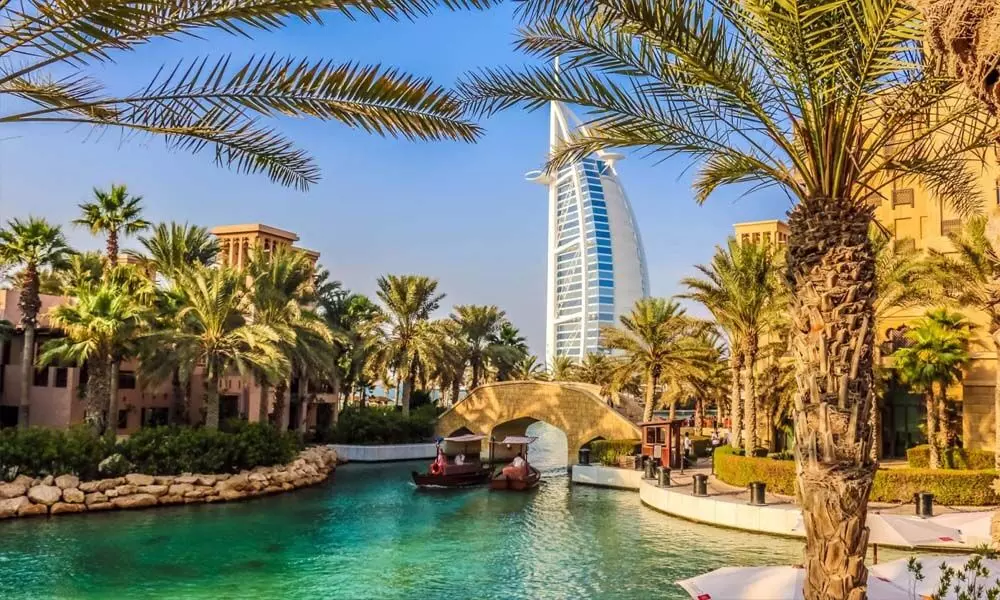World city leaders meet to re-imagine urban tourism
The growth of urban tourism has created opportunities for development, but also challenges for cities to manage environmental and socio-cultural impacts and the relationship between visitors and host communities, mobility, security, and flows of people
image for illustrative purpose

The mayors of some of the world's leading destinations have met in Porto to rethink urban tourism in the post-pandemic age. Organized by UNWTO, the Government of Portugal, Turismo de Portugal and the City of Porto, the Mayors Forum on Tourism and the Future of Cities highlighted the opportunity to restart urban tourism with a focus on sustainability, innovation and inclusion.
According to the United Nations, in 2015, 54 per cent of the world's population lived in urban areas and, by 2030, this share is expected to reach 60 per cent. Along with other key pillars, tourism constitutes a central component in the economy, social life and the geography of many cities in the world and is thus a key element in urban development policies.
Urban tourism can represent a driving force in the development of many cities and countries contributing to the progress of the New Urban Agenda and the 17 Sustainable Development Goals, in particular, Goal 11: Make cities and human settlements inclusive, safe, resilient and sustainable. Tourism is intrinsically linked to how a city develops itself and provides more and better living conditions to its residents and visitors.
Urban tourism has been among the hardest hit parts of the sector and may be the last to recover. For this reason, "the return of tourists to cities around the world will bring more than just jobs and economic recovery", said UNWTO Secretary-General Zurab Pololikashvili. "It will bring hope, confidence and help revive what makes urban life so exciting, from culture to gastronomy to entrepreneurship and new ideas." In this context, the Secretary-General also commended Portugal's National Support Plan for Tourism recovery as well as its recently launched Sustainability + Strategy.
Pedro Siza Vieira, Minister of State, Economy and Digital Transition of Portugal, said: "Now is the time to reflect on how important management of flows of tourists is in our cities. Digital technologies and continued investments in new attractions will allow us to provide a better experience for the millions of people who are eager to resume travel and who will come to visit our cities in the future."
As host of the Forum, the Mayor of Porto Rui Moreira said: "Cities must know how to transform themselves, turning the old into new, rehabilitating and promoting their heritage, material and immaterial, and simultaneously creating new poles of interest to serve and welcome residents and visitors."
Porto Declaration on Future of Cities
Participants adopted the Porto Declaration on Tourism and the Future of Cities, which reaffirms cities' commitment to growing tourism sustainably and responsibly. This includes placing tourism on the urban recovery agenda, with policies aligned with the United Nations New Urban Agenda and the 2030 Agenda for Sustainable Development. The Declaration also states that signatory cities will promote multi-stakeholder cooperation for fostering innovation and using digitalization and big data to enhance both the tourist experience and the sector's positive impact on residents. Furthermore, the Declaration recognizes the importance of cities building bridges with rural areas so that the benefits of tourism are employed more widely.
Urban areas are powerhouses of socio-economic growth, democracy and development, functioning as catalysts for inclusion and innovation. Worldwide urbanization has led to an increasing number of people living in cities and feeling more connected with urban lifestyle which has translated to more people visiting cities looking for diversity, intercultural dialogue, innovation and exchange of knowledge.
Urban tourism constitutes an essential driver to the socio-economic development of many cities and their surroundings rural areas and contributes significantly to innovation and the conservation and promotion of natural and cultural resources.
The growth of urban tourism has created opportunities for development but also challenges for cities to manage environmental and socio-cultural impacts and the relationship between visitors and host communities, mobility, security, and flows of people.

